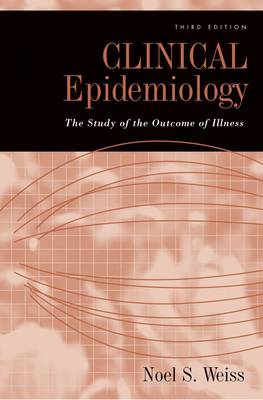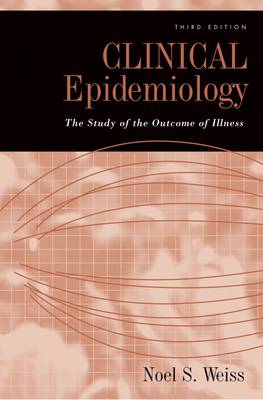
- Afhalen na 1 uur in een winkel met voorraad
- Gratis thuislevering in België vanaf € 30
- Ruim aanbod met 7 miljoen producten
- Afhalen na 1 uur in een winkel met voorraad
- Gratis thuislevering in België vanaf € 30
- Ruim aanbod met 7 miljoen producten
Zoeken
Omschrijving
Examining the principles and methods of research on the evaluation of factors affecting the outcome of illness, this book emphasizes diagnostic and therapeutic interventions--the factors most readily modified by health care providers. The author discusses various ways of structuring observations on patient groups, and appraises the nature and strength of inferences drawn from those observations. He also demonstrates how the results of this type of research--clinical epidemiologic research--can be incorporated into the decision-making process utilized in clinical medicine. This book contains a concise account of topics such as the assessment of the use of diagnostics and screening tests and their role in improving the outcome of illness, the evaluation of therapeutic efficacy through experimental and nonexperimental studies, and a particularly useful chapter on assessment of therapeutic safety. It is an essential reference and guide to the quantitative assessment of the consequences of illness for clinicians in training or in practice.The new edition of Clinical Epidemiology greatly expands the chapter on randomized control trials, and includes a whole new chapter on meta-analysis, authored by Peter Cummings. Meta-analysis, the statistical synthesis of data from comparable studies, was unheard of 30 years ago, but with the advent of increased computer technology, the method has been steadily growing in importance in the epidemiology community.
Specificaties
Betrokkenen
- Auteur(s):
- Uitgeverij:
Inhoud
- Aantal bladzijden:
- 192
- Taal:
- Engels
- Reeks:
- Reeksnummer:
- nr. 36
Eigenschappen
- Productcode (EAN):
- 9780195305234
- Verschijningsdatum:
- 1/06/2006
- Uitvoering:
- Hardcover
- Formaat:
- Genaaid
- Afmetingen:
- 164 mm x 236 mm
- Gewicht:
- 444 g

Alleen bij Standaard Boekhandel
+ 171 punten op je klantenkaart van Standaard Boekhandel
Beoordelingen
We publiceren alleen reviews die voldoen aan de voorwaarden voor reviews. Bekijk onze voorwaarden voor reviews.











